Andrés Cruciani's Blog
September 5, 2019
Poetry Chapbook Scholarship Winner!
We here at Toho Publishing are thrilled to announce the first Dr. E. Benenson Scholarship in Poetry recipient. The recipient of this scholarship will get to attend our poetry chapbook course and will then have their chapbook published. Congratulations, Aleasha!
About the Recipient
Aleasha Quzack, a graduate from the University of the Arts with a BFA in Creative Writing (Poetry), will use the scholarship to work on a poetry collection that celebrates Philadelphia and discusses generational trauma through the use of African-American Vernacular English. She wishes to publish her collection, Next Hood Over, so that her community can see their dialect and stories reflected in contemporary literature.
About the Scholarship
The Dr. E. Benenson Scholarship in Poetry was established by a generous donation from Dr. E. Benenson’s family to honor her memory. By allowing free participation in Toho Publishing’s chapbook course, this need-based scholarship supports promising poets seeking assistance in polishing and publishing their work.
A devoted wife and loving mother, Dr. E. Benenson was a very successful nurse, entrepreneur, and businesswoman who held a doctorate in Gerontology from Columbia University. Born in Jerusalem, Dr. E. Benenson opened her first nursing home in her own house in Queens, New York, where she was the cook, nurse, counselor, and administrator. Through sacrifice and vision, she grew her modest initiative into several nursing homes and rehabilitation centers, helping thousands of patients and their families.
Dr. E. Benenson strongly believed that, given the opportunity, any determined and courageous individual could flourish; for that reason, she supported many charitable ventures, both Jewish and otherwise, throughout the course of her life.
Toho Publishing is incredibly appreciative of her family’s support.
Toho Publishing helps Philadelphian literature and writers thrive. Check out our first novel here.
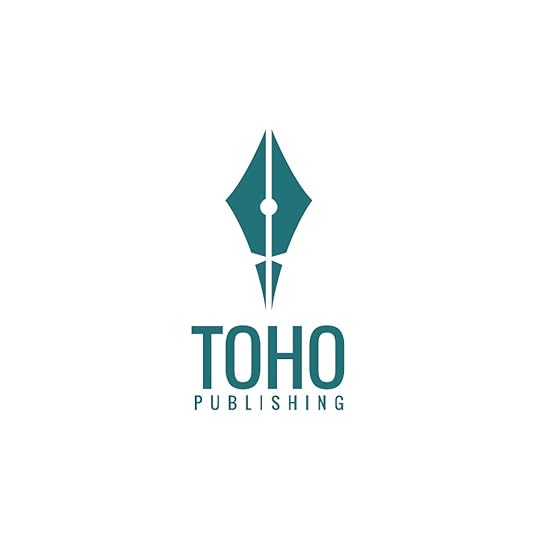

Poetry Chapbook Scholarship Winner! was originally published in TOHO MAGAZINE on Medium, where people are continuing the conversation by highlighting and responding to this story.
March 13, 2019
Toho Publishing Updates (3/13/19)
 Photo by Patrick Tomasso
Photo by Patrick TomassoWell, folks, Andrés Cruciani of Toho Publishing here, and it’s been all quiet on the Medium front for a bit because we’ve been busy! Here’s an update on where our micropress stands after three months of being in business:
Publications: We have published a novel ( The Father ) and a short story ( The Scientist ). The Father currently stands at 4.9/5 stars with 25 reviews—which, if you have any experience selling on Amazon, you know that getting reviews is HARD. Total, we’ve sold over 200 copies, a tiny number by some measures, but considering that neither this company nor the book existed four months ago, it’s not too shabby. The Scientist, on the other hand, peaked at 32 in one of its book categories. So, we are getting there. And if there’s one thing we’ve learned, it’s that publishing is a LONG game.Toho Journal: We’ve started a literary journal! We currently have 8 editors and 10 outside contributors. While we’re Philly-based (and trying to support local writers), we welcome submissions from all geographies and of all skill level. You can find more information here. The deadline for submissions is 3/31—hurry!Clients: We have five clients and are helping them with everything from editing their novels to finding agents to submitting their work to literary magazines. Basically trying to lighten the burden of what makes being a writer so, well, hard.Courses: We’ve taught one generative writing workshop and are in the process of creating more classes!Partnerships: We’ve partnered with Green Street Poetry, St. Michael’s Lutheran in Kensington, and A Novel Idea (a bookstore—you can find The Father there!). We will also be partnering with London Grill in the near future and hosting a reading there.Events: Philadelphia Writers’ Conference invited me to give a workshop! I’ll be teaching a class on how to write a short story in 30 minutes. And, as mentioned above, we’re in the process of organizing events at various venues.Translations: Both The Father and The Scientist have been translated into Spanish. We’re currently looking into distribution in Argentina (my country of birth), as well as in other Spanish-speaking countries.Distribution: We’re trying not to put all our eggs into the Amazon basket. As such, we have used a company called Draft2Digital to distribute The Father’s ebook across numerous digital platforms (Baker & Taylor, Ingram Sparks, etc.). We’re also looking into more physical distribution channels for The Father.Well, think that’s about it for now. Tonight all of the Toho Journal editors are getting together, and we gotta get our place ready!
Toho Publishing aims to be the best micro press in Philadelphia. Check out our first novel.

Toho Publishing Updates (3/13/19) was originally published in TOHO MAGAZINE on Medium, where people are continuing the conversation by highlighting and responding to this story.
March 4, 2019
How to Get Your Writing Published
Today’s post comes to us from our one-time intern Parker Hilly and is about what it takes to get published. Here’s Parker.
 Let’s just be glad that rejection letters are sent via email these days!
Let’s just be glad that rejection letters are sent via email these days!I mentioned in my last post that I had been submitting one of my stories to various journals and had already received my first rejection (and I’ve since gotten two more!). My rejection letter went a little something like this:
Dear Parker Hilley,
Thank you for sending us “A Real Good Man.” This piece isn’t going to be a go for [our journal], but we appreciate your thinking of us and wish you the best in finding the right home for it.
Sincerely,
The Editors
I tried to remember the last time I’d been rejected as a writer and honestly couldn’t. And I’m not saying this because I’m overconfident in my abilities; it’s more so that I’ve never been rejected because I’ve never really put my writing out there to be judged.
But rather than feel the sting of rejection upon seeing that first “declined” notification in my inbox, I was actually a little excited. Someone outside of my circle read my work! They might not have liked it. Or maybe they liked it and simply didn’t have enough room in the journal for it. Or maybe it didn’t fit with the theme of the current issue. (Or maybe it was another reason?) But I took a chance and put my work out there for someone else to read. And it felt good!
 Each step a rejection. Each landing a publication. Onward and upward!
Each step a rejection. Each landing a publication. Onward and upward!We as writers need to remember to embrace that first rejection because it represents the first step towards the goal of publishing your work. Getting rejected once (or three times! or more!) doesn’t mean you should feel bad about yourself or your writing. For every 30 journals you submit to, only one might accept your piece, but you won’t be able to find that one unless you get 29 rejections first. (Stephen King received so many rejection letters when he first started writing that the nail he’d used to post the first one on his wall had to be replaced with a spike to support the weight of them all!)
Perhaps I’ll change my tune if it turns out I submit to 30 journals and not a one of them accepts my work, but then I’ll just have to submit to 30 more! The path to success is rough and paved with stones of rejection. Some of our paths may be longer than others (and we shouldn’t be mad at those whose paths are enviously short!). As cheesy as it sounds, seriously, don’t give up. If being a writer is what you want to do, actually writing is only part of the job. You have to put yourself and your work out there—and get rejected!
Parker Hilley is a restaurant general manager by day and a tortured writer by night. This Atlanta native enjoys pens that write really well , traveling, and napping with her three dogs. She hopes to follow through on her New Year’s resolution this year and complete her first novel by the end of 2019.
Toho Publishing aims to be the best micro press in Philadelphia. Check out our first novel.

How to Get Your Writing Published was originally published in TOHO MAGAZINE on Medium, where people are continuing the conversation by highlighting and responding to this story.
February 12, 2019
Writing Communities: On Convenience and Creation
 Writers can literally carry each other. :)
Writers can literally carry each other. :)Well, folks, Andrés Cruciani here of Toho Publishing, and today we have the founder of Palm-Sized Press, Emily Owens, sharing her views on the importance of writing community. Welcome, Emily!
I never appreciated having a convenient writing community until I was no longer surrounded by one. Throughout high school and college, there were always clubs and societies set up by writers who had been there long before me, and it was easy to just start showing up to their meetings, and—once I’d become comfortable enough—to share my work.
The more I attended these meetings, and the further I progressed in my writing practice, the better I became at workshopping others’ work. Being able to provide constructive criticism to another writer may not make you kinder to yourself when you’re editing your own writing, but it can help you see more clearly the places you need to rework, and the overall aspects of the piece that may or may not be working — to see both the trees and the forest.
 Oh, how I missed Newcastle …
Oh, how I missed Newcastle …I was lucky enough to do a creative writing MA at Northumbria University, and during my year-long program, the other students in my class became my drinking buddies and confidants, as well as my editors. Soon after I graduated, I moved to a small town in North Yorkshire. I didn’t know anyone there. It was half hour by bus and another thirty minutes by train to the nearest city, Newcastle, where my friends and community still were. Writers have a reputation for living like hermits, like my friend Parker said, each of us existing as “a solitary creature, slaving away at your typewriter.” I definitely do my best work when left alone, but suddenly this silent scene was all I had. I wouldn’t recommend it.
But for a long time, I haven’t just been a writer. Since being on the staff of my high school’s literary magazine, I have loved the process of sharing other artists’ work: from collecting pieces together from a range of people, to producing and putting everything on the page, to seeing the final product and remembering that feeling you get when you see your work in print, knowing that others will see it too. I’ve realized that helping other artists to experience the latter of these will be one of the greatest loves of my life.
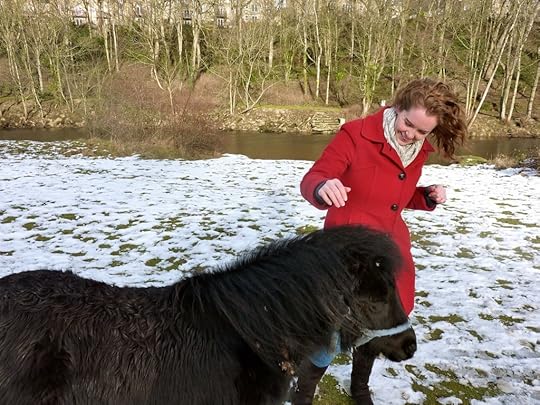 When I began writing with ponies, that’s when I knew it was time to start a writers’ group.
When I began writing with ponies, that’s when I knew it was time to start a writers’ group.Palm-Sized Press began as an online flash fiction community. When I felt isolated in general, and separated from a writing community in particular, I determined to create one myself, an online community—so that no matter where you are, you can always join. Writing communities aren’t just about the work of writing. It’s a key aspect of them — to become more productive in your writing, to share your work and have access to constructive feedback, to develop your own editing skills — but the craft is not all the community nurtures. Writing communities are support systems; a collective united by its love of words; a source for joy and laughter, and relief when we are weary or wounded.
Writing communities aren’t always convenient. Someone may not have created one where you are, or you may not have found the right one, but you can always start your own. So go find your people.
Emily Owens, who writes under the name E.M. Killaley, has been doing more editing than writing recently. Currently working for the publisher How2Conquer, she has also previously been part of Mslexia, a UK-based women’s writing magazine; edited various literary magazines over the years; is the founder and editor of Palm-Sized Press, an indie publisher and online flash fiction community; and most recently started the generative writing group, Drafts on Draft with Parker Hilley. Emily is a Northern Writers’ Awards New Fiction Bursary winner and graduate of Northumbria University’s MA Creative Writing program. Her creative work has appeared in Papaya Press, Alliterati, and We Wrote a Book: An Anthology of Stories.
Toho Publishing aims to be the best micro press in Philadelphia. Check out our first novel.

Writing Communities: On Convenience and Creation was originally published in TOHO MAGAZINE on Medium, where people are continuing the conversation by highlighting and responding to this story.
February 6, 2019
Finding Your Zone
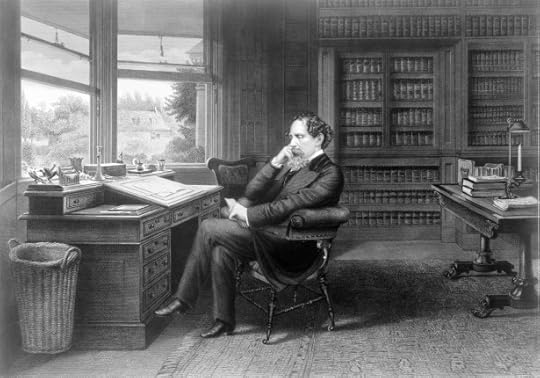 Charles Dickens is #writingdeskgoals.
Charles Dickens is #writingdeskgoals.Well, folks, Andrés Cruciani of Toho Publishing here, and today we have our intern Parker Hilley joining us, talking about writing environment and calling on writers to join her writing workshop in Decatur, Georgia. Here’s Parker!
Almost as important to the writer as the story-writing itself is the environment in which the writer works. Perhaps you’re one of those enigmatic writers, a solitary creature, slaving away at your typewriter in your attic apartment, a mystery to the tenants in the rooms below who know nothing of you except your nocturnal mutterings and footsteps on the floorboards. Maybe you fancy yourself as one of those coffee shop writers who commandeers an entire four-top for yourself, your laptop, and the single cup of coffee you ordered four hours ago. Or maybe you’re a professional, and you find that your best works can only be written at the posh mahogany desk in your study with a glass of scotch in your hand and Bach playing quietly in the background.
There are also writers like myself who prefer to write at home, in bed with my dog(s), after midnight, occasionally listening to music from a curated playlist simply titled “for writing”. Whatever the type of creative space you’ve made for yourself, that’s where you go to feel most comfortable and productive …
 My dog Sam “helping” me with my NaNo novel in 2016! (You try to be productive with this guy in your lap!)
My dog Sam “helping” me with my NaNo novel in 2016! (You try to be productive with this guy in your lap!)But maybe you’ve been feeling a little too comfortable and slightly (okay, a lot) less productive than you’ve been in the past. Then it’s time to shake things up. I’d been feeling not so creative before I started this internship with Toho, but just in the last month, I feel like I’ve accomplished so much. I’ve submitted my work to almost thirty journals (and received my first rejection!) and made moves to start a generative writing workshop—along with Emily Owens, my friend and fellow writer who runs Palm-Sized Press and a blog for writers.
Drafts on Draft is currently calling for writers and people who want to write to meet us at Thinking Man Tavern in Decatur, Georgia (which coincidentally is also where I work! Come say hi if you’re ever in town!) starting March 9th and running on Saturdays for six weeks. Our goal is simple: to create and inspire others to create … and to drink like the greats while doing it! It’s time we venture out of our attics and studies, let someone else have the table by the window at Starbucks for a change, and embrace a change of scenery.
Parker Hilley is a restaurant general manager by day and a tortured writer by night. This Atlanta native enjoys pens that write really well , traveling, and napping with her three dogs. She hopes to follow through on her New Year’s resolution this year and complete her first novel by the end of 2019.
Toho Publishing aims to be the best micro press in Philadelphia, and we’ve published our first novel.
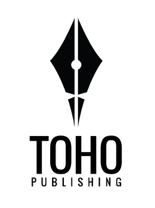

February 5, 2019
9 Ways NOT to Be a Writer
 If I just keep writing, maybe I’ll get a book deal …
If I just keep writing, maybe I’ll get a book deal …Well, folks, Andrés Cruciani of Toho Publishing here once again, and today I come at with you with 9 ways NOT to be a writer.
Now, this post has been stewing for a while, frothing really (i.e., I’m foaming at the mouth as I write), so let’s get straight to it before my head bursts from the sheer force of what I need to tell you.
RULE #1: Don’t let your head get too big.That’s right. I said it. A lot of writers think they’re smarter than everyone else. I know because I was one of those people. I thought that the incredible literature I read — Dostoevsky and Tolstoy and Rand (yes, her too) and Morrison and McCarthy (Suttree, in specific) — made me somehow better than all the lowlifes who not only read but ENJOYED E.L. James’ travesty of a book Fifty Shades of Grey.*
*I actually read Fifty Shades of Crap and wrote my MFA thesis on it. I wanted to see what all the hoopla was about and how on Earth Mrs. James could’ve made so much freaking money from a book about S&M. What I discovered was that I still have no effin’ idea except that it must have just hit some tipping point (a la Malcom Gladwell) and then our collective social psyche did the rest. But as to the book’s quality, the main character (whose name I presently refuse to look up) had a “lump (a hitch?) in my throat” like 6,000 times. And there were a whole lot of butterflies in her belly. Like in every other scene. Ugh.
The truth is, however, I’m not better than anyone else (even though Fifty Shades really sucked). And neither are you.
And the way I know you’re not smarter than others for being a writer and voracious reader is very simple and provable by the following question: if you’re so damn smart, why are you spending all your time reading books?
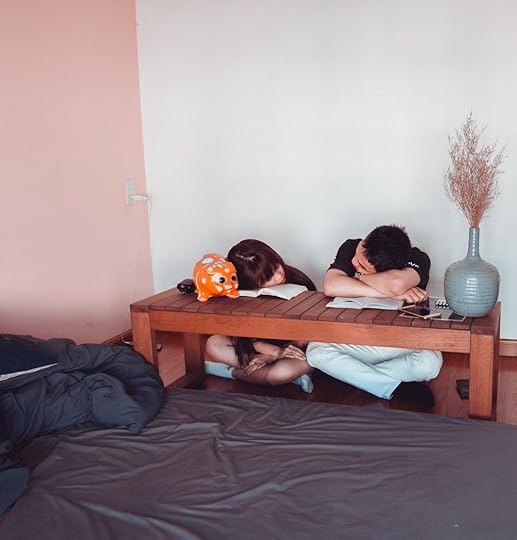 The amazing world of imagination.
The amazing world of imagination.HA!
That’s right. You — yes and I too — are the knuckleheads. Descartes supposedly stopped reading novels because they make you believe in the impossible. Now, a lot of writers think believing in the impossible is some kind of amazing feat of literature. Some kind of testament to its power. Everywhere on this internet I see the quote (intentionally garbled here): “You only live but the one life, but I who READ live a thousand.”
Barf.
Sitting in your chair all day with nose-to-book doesn’t make you superior — or more worldly. In fact, one could easily argue the opposite—that because your life is short and we’re spinning on a globe hurtling through the universe and there are a plethora of things you will never actually see or smell or taste or touch or DO because you’re spending all your time reading damn books, that you (yes, and I), dear touter of the intellect and champion of the literary classics, are the actual morons. There. I said it.
RULE #2: Don’t get an MFA.Alright, this one comes with both a caveat and a disclaimer.
First, the disclaimer: I have an MFA.
Second, the caveat: it really depends on what your goals are. If your goal is to get better at writing, then by all means go get an MFA. Because in all truth, I DEFINITELY got better pursuing my MFA. Lots better. Lots.
BUT, if you suffer from the delusion that you’re going to get your MFA and then write your masterpiece and publishers will be lining up at your door with million dollar checks, clambering to shove their money down your throat, then please reconsider. (I wrote about this here.)
Sure, some people will come out of MFA programs with book deals. Some with lucrative book deals (especially those whose writing or persona happens to be topical/trendy). But the bulk of MFA recipients (Hi, I’m Andrés) will not get those big-buck book deals. There are ~250 writing MFA programs in the US. 3,000 MFA grads EVERY YEAR. Ask yourself: Where are all these MFA grads going? Are they all getting incredible book deals? Are they all making a living by writing fiction?
The answer to that last question is obvious, and I’ll answer it with another question:
Did you read 3,000 books by first-time novelists last year?
HAHAHAHAHAHA!
Which tells us that all these poor saps (Hi, I’m Andrés) are not reveling in the author glory they imagined for themselves. They’re working at publishing houses and writing ad copy and doing corporate communications and writing porn titles (yup, I know a guy) and managing companies’ social media and editing and, of course, teaching.
Which is all to say, get an MFA if you want to better your craft. Just don’t delude yourself about what that stupidly expensive piece of paper will get you.
 Each of these caps cost $90,000.
Each of these caps cost $90,000.Lastly, if you’re looking for an alternative, consider this:
A two-year MFA can easily cost $50k + living expenses. So, for a two-year program, maybe $90k? If you took that money (i.e., loans) and went to live somewhere (super) cheap, you could live frugally for at least five years, form your own writers’ shops, take free online classes, build a blog, and read as much as possible and probably be better off than most of my MFA peers. Or, well, me.
RULE #3: Don’t spend all your time alone.Look, writers are a bunch of introverts. (I know this all too well.) Now, there are lots of folks on the internet touting the wonders of introversion—how swell it is, how amazing the world of imagination is.
But let’s be real: all that’s a bunch of hornswoggle.
Sure, to write you have to spend time in solitude. But we, as human beings, are social creatures. We benefit from and enjoy others’ company. We foster our spirit when we help others, when we eat communally, when we share. Yet all these virtues are anathema to the introvert.
The introvert swears by solitude and craves giant chunks of it. Believe me, I understand. But while there are introverted natures out there, frankly, a lot of this introversion is just a veil over our social anxiety — and our hubris.
So many introverted writers are just lying themselves. Sure, reading a book is nice — it can even be wonderful — but a book is not actual company. A book does not pulse and does not breathe despite all the crappy internet metaphors out there. A book will not help you pack and move and it will not give you the same solace on your deathbed as a loved one’s warm hand. Stop pretending.
Finally, so many writers are just using their introversion to hide their intense hubris. In your head, you can tell yourself (and believe) how great you are. How amazing your writing is. How necessary you and your words are to the world (just wait till I die when everyone will realize how much they were missing out on, how incredible my writing was, blah blah blah …). It’s all a bunch of malarky.
Get out of your skull. Write, and then go enjoy your brief existence. There is more to life than paper. (And Kindle.) Don’t learn that too late.
RULE #4: Don’t think your writing is better than everyone else’s.This is an extension of Rule 1, but it should be said outright.
Your writing’s good, maybe even great/outstanding, but so are the writings of a (possible literal) million other writers worldwide (officially, ~300k in the US alone). Think about all the journalists, the essayists, the novelists, the poets and short story writers. Think about all those MFA grads and English BAs and MAs and PhDs. Think about all the copywriters and bloggers and even those who learned the craft just by reading a whole bunch.
 Do you still think you’re special? NO, SIR! *sob* *tear* *heart break*
Do you still think you’re special? NO, SIR! *sob* *tear* *heart break*Do you really think that somehow your writing is better than all of theirs? Why? Where did such intense egomania come from?
It’s okay, believe me, I understand. But you need to let your ego a-go-go. And you need to understand that no matter how great your writing is, the world will be just fine without it. Yes, that’s right. I even heard the Pope Francis — yes, the POPE — say the other day that no one is indispensable. So stop thinking your writing is so important. For every Cormac McCarthy, there are ten thousand other Cormac McCarthys whose names you will never know.
It’s ok though.
Just relax. It’s less serious than you make it.
 I’ve finished my book! Love me, world! Love me now, damnit!RULE #5: Don’t think that just cuz you wrote it someone will publish it.
I’ve finished my book! Love me, world! Love me now, damnit!RULE #5: Don’t think that just cuz you wrote it someone will publish it.I learned this the very hard way, but just because you spend a stupid amount of time writing a book (say, eight years) does not mean that your novel will be met with open arms.
Like the thousands of unknown McCarthys and Melvilles and Allendes, for every decade-in-the-making book that gets a sweet book deal, there are literally tens of thousands that will not. It’s simply the nature of traditional publishing.
The funnel of traditional publishing has not grown with the glut of writing — and writers — out there. Which means that more people will be left out (ergo the rise of self publishing and micro presses and blog platforms like Medium). We are in a time when traditional publishing is consolidating (because it’s dying). Know this.
Also, there are many people now succeeding with self-publishing and building their own audiences on Facebook, Instagram, Twitter, Youtube, email, etc. Imagine that you yourself were a traditional publisher. A traditional publisher, in fact, that needs to publish successful books in order to stay in business — in order to keep the lights on and pay your employees. Who would you rather publish? The author who wrote a great book and has a huge social media following and has already sold 100,000 copies of earlier books? Or the first-time author who wrote a great book but has never even done a reading? Be honest. And then remember that answer — forever.
 Yeah, sure, we’ll stock your book. Think there’s space in aisle FFF, shelf 129.328.6.RULE #6: Don’t think that writing something great is enough. It ain’t.
Yeah, sure, we’ll stock your book. Think there’s space in aisle FFF, shelf 129.328.6.RULE #6: Don’t think that writing something great is enough. It ain’t.This one’s really a corollary to rule five, but seriously, understand that the bar has raised. There’s so much outstanding work being produced at the moment that just producing great stuff ain’t enough anymore. You need mechanisms for both distribution AND marketing. (Wrote more about this here.)
Just having your novel listed on Amazon, for example, isn’t enough. Sure, you’ve got the distribution, but how will you ever sell copies if no one ever knows to look for your book? There are ~32,000,000 paperbacks alone on Amazon. Just throwing your book on the pile and thinking people will find your work is, well, a little naive. Like finding a piece of hay in a haystack.
Now, fret not. Just understand that you will need to write great things AND market them. Some writers market naturally. Others will have to be more intentional and methodical. Should you build an email list or an Instagram following? Should you publish on Amazon or IngramSpark? Research and then choose your distribution and marketing methods.
 Is your book more interesting than all these screens?RULE #7: Don’t think your book will be the one that makes people read again.
Is your book more interesting than all these screens?RULE #7: Don’t think your book will be the one that makes people read again.Look, I know you think you’re writing something amazing. Life changing. World changing. History-book making. Maybe you did. But Netflix, Hulu, Amazon Prime, even Facebook and Instagram and Snapchat for crying out loud, for entertainment: they’re winning! Maybe you’ll succeed in pulling a few eyeballs, but don’t bank on being the next Harry Potter. (Which, btw, J.K. Rowling was writing middle grade fantasy. I.e., she was writing a book for a population that is FORCED to read — by schools, their parents, their teachers. Yeah, Rowling obviously struck billionaire big, but would she have struck such literary double platinum had she been writing, say, high brow literary fiction?)
(Answer = NO.)
Point being, enough with the delusions, fellow writers! I know a lot of us have fantasies that one day people across the globe will be huddling with our books. We’ll walk onto a subway car and there our books will be: in every lap, on every phone, on every night-shifted tablet. We’ll book tour and win Pulitzers and Nobels. Oh how the writing fame will rain down upon our bloated heads!
Sure. Deny it. Deny your delusions of grandeur. Maybe in you the writer’s dream is small. It’s possible. But I know that in others of you this dream is bi g— BIG! And I know this because one time at a writing conference, a writer asked how she could copyright her work before sending it to agents and magazines to be published. The implication being that someone was going to steal her work. I mean, it was so sad/absurd I wanted to cry and laugh at once. Steal her work?? These agents are getting hundreds of books a week. Who even has the time to steal?
Yet the reason it was so particularly sad is that I’d once had the same thought. Yes, really. I couldn’t send out my work because someone might steal it. (Oh, tears are streaming down my laughing cheeks. The delusion!)
But just remember: for every lottery winner (for every J.K. Rowling), there are 100,000,000 losers out there. Fact.
So, relax. Humble yourself. Enjoy the ride cuz there probably ain’t no pot o’ gold. And if you do find one, it’s cuz you hustled, workhorsed it, or just got lucky. Which gets us to …
 Just one of these bills represents the royalties from selling 50–100 books. Oh dear …RULE # 8: Don’t fool yourself into thinking you’ll make money from fiction.
Just one of these bills represents the royalties from selling 50–100 books. Oh dear …RULE # 8: Don’t fool yourself into thinking you’ll make money from fiction.Look, it’s possible. It really is. There are people making decent bucks from books as you read this. But these people are a rare breed. Especially those being published traditionally. There’s just only so much bandwidth those traditional publishers can handle.
But the same goes for those self-publishing. The Amazon game is being run by not that many people. All those platforms — Amazon, IngramSparks, Barnes and Noble, Medium, etc. etc. — there are a few people at the top. A few of them got there cuz they got lucky. The rest because they hustled and persisted. But now the most successful ones have built writing/publishing machines that are tough to compete with.
Can you be one of those of people? Can you compete?
Yes. Yes, absolutely. But getting to the top of any of these platforms, or getting a traditional book deal, is nothing romantic. It’s a grind and a hustle. It’s a decades-long marathon and career. An online rat race of its own.
So, if you’re an arteest, write away. Enjoy it. Build your worlds of imagination. But understand that if you want to make money from your art, you’re going to have to do things that bring in money: networking, advertising, marketing, just good ol’ hustling. I.e., you’re gonna have to sell.
 Keep writing until you look like your great grandpa.RULE #9 (WHAT YOU SHOULD DO): Don’t give up.
Keep writing until you look like your great grandpa.RULE #9 (WHAT YOU SHOULD DO): Don’t give up.Look, perhaps this post discouraged you. If I’d read it ten years ago, I wouldn’t’ve been able to hear it. I would’ve thought the writer was jaded and he just didn’t realize that my work really was great. World changing. That my book really was going to make adults read novels again — and literary novels at that! I understand if you didn’t make it this far. Maybe you’re not ready …
But consider this entire post a reality check. A curb on the romantic notions we as writers develop over long slabs (i.e., years) of time alone, in our heads, creating fake things. What fake notions do we develop about the real world? And how can we check those notions?
Ultimately, though, the trick is to just keep going. To write humbly and prolifically (as much as you can) and to appreciate the journey. To write for our friends and family and to share our work and to be happily cognizant that our time on this Earth is limited, so write, but don’t hold that pen so hard. For when the time comes to market, you’ll have to do that too …
Think we missed something? Let us know in the comments!
Toho Publishing aims to be the best micro press in Philadelphia, and we’ve published our first novel. Join us on all the things: Facebook, Twitter, Medium, YouTube, and Instagram.

February 2, 2019
I feel you.
I feel you. Life exploded my own delusions. I’m sure a few pernicious ones remain … And yes, save me a seat up there! :)

Yes, for better or worse, it seems to be a must these days!!!! Keep up the good fight! :)
Yes, for better or worse, it seems to be a must these days!!!! Keep up the good fight! :)

January 30, 2019
How to Edit a Paragraph (from a Novel)
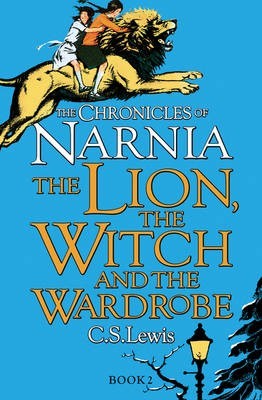 C.S. Lewis is one of Ross Boone’s literary heroes.
C.S. Lewis is one of Ross Boone’s literary heroes.Andrés Cruciani of Toho Publishing over here, and we are nearing the end of a major edit of Ross Boone’s The Blind Step Boldly. Thought I might use today’s blog to show just what it is we do when we edit — shown by the edits we actually made on a paragraph.
The Blind Step Boldly is a fantasy novel about a boy and a girl on a quest to save their drowning world. In the following graf (as all the cool editors call paragraphs), the main character Tobei meets the eyes of Beastoad — a strange, frog-like man. When making eye contact, Tobei has a power that allows him to see others’ memories.
Tobei met his eyes with intense compassion and striving to connect behind the confusion on his face, but he only saw one image this time. It was the prominent thought that came in the wake of all the rejection of the people, and of his brothers, and of the Overbearon, and the desertion of his mother.
Here are the edits I made. If you want to see the final graf, just jump to the end of the list.
1) Ambiguous pronoun: It’s unclear who that first “his” was referring to, so I changed it to Beastoad’s.
2) Awkward construction: “Tobei met his eyes … and striving to connect …” The “and” here creates some awkwardness, so we cut the “and”.
 Got grammar?
Got grammar?3) Redundancy & ambiguity: “… striving to connect behind the confusion on his face …” First, there’s another ambiguous pronoun (whose confusion? Tobei’s or Beastoad’s?). Second, “confusion on his face” seems slightly redundant. Where else would the confusion be expressed. So, we cut “on his face”.
4) Telling instead of showing: The whole line, “It was the prominent thought …” is a lot of explication. And, frankly, in the very next graf we’re going to see the memory, so we don’t need to be told beforehand what the memory is about. The sentence is also quite long and the phrase “in the wake of all the rejection of the people” is a bit wordy and difficult to decipher. So, very simply, we cut.
And here’s what we have after the edits:
Tobei met Beastoad’s eyes with intense compassion, striving to connect behind the man’s confusion, but he only saw one image this time.
Note how much more concise this new graf is. And note how much less is explicitly being told. From two sentences, we dwindle down to a sharper ONE. This is what we here at Toho Publishing do: we get at the essence!
Toho Publishing aims to be the best small publisher in Philadelphia, and we’ve published our first novel. Join us on all the things: Facebook, Twitter, Medium, YouTube, and Instagram.

January 29, 2019
I Read at the Dead Bards New Year’s Poetry Bash
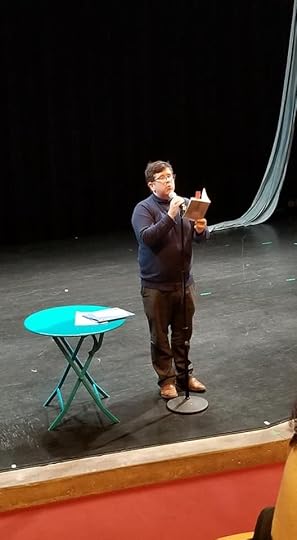
Well, folks, Andrés Cruciani of Toho Publishing here, and today we have Philadelphian poet Sean Hanrahan expounding on why you should read your poems at readings. Here’s Sean!
My name is Sean Hanrahan, author of the chapbook Hardened Eyes on the Scan published by Moonstone Press. I am a mid-life poet working to expand the reach of my poetic efforts as well as trying to promote and give back to the Philadelphia poetry community. I recently had the opportunity to read at the Dead Bards New Year’s Bash on Tuesday, January 22nd, at the Venice Island Performing Arts Center. This bash celebrated three or so poems from the featured readers of the 2019 series. The celebratory reading featured a diverse slate of poets including many I had heard before or had the pleasure of reading with in the past, including Veronica Bowlan, James M. Cory, Josh Dale, Philip Dykhouse, Cynthia Jones, Chris Kaiser, Anthony Palma, Brooke Palma, Aaren Perry, Amber Renee, Stu Stuart, and Jeremy Eric Tenebaum.
 James Feichthaler, author of the epic poem The Rise of Covfefe.
James Feichthaler, author of the epic poem The Rise of Covfefe.They are all remarkable poets with different, thought-provoking points of view, gorgeous turns of phrase, and an undying love of poetry and the suppleness of the English language. The Dead Bards reading series is emceed by a mean lyric master himself, James Feichthaler, author of the epic poem of our time The Rise of Covfefe. He also can be found on YouTube under the handles Taliesin/Big Tal.
I remember reading at the Dead Bards as a featured poet this past November. Imagine performing your poetry for twenty minutes and hoping each poem lands to at least one receptive ear. Initially, the Venice Island Performing Arts Center in Manayunk seemed to me to be an intimidating performance venue. It is a big stage where you look up into the raked audience; however, my intimidation quickly dissipated with the warmth and genuine appreciation of friends, fellow poets, and an engaged audience. I have always enjoyed performing and thoroughly enjoyed being able to read on a stage designed for full theatrical productions.
Through going to the Dead Bards series — along with readings for Moonstone at Fergie’s or traveling out to West Chester for the Livin’ on Luck series — I have happily discovered friends and delightful members of a seemingly wide-ranging poetry community. I love watching people read new poems and especially enjoy seeing a poem I have heard before evolve over several performances. It’s also great to talk mechanics or next projects before or after a reading — or just trade stories about life. Until I started attending readings more regularly, I did not know I hungered for such companionship and support.

I strongly encourage anyone reading this post to follow Dead Bards on Facebook to find out more information about the monthly poetry reading series. You can also checkout Facebook or other sources for the Moonstone and Livin’ on Luck poetry series. Also, there are several more series I would like to experience including Pecola Breedlove, You Can’t Kill a Poet, and Lo Nuestro. There are so many that maybe you have your own favorite reading series. As much as I love to perform, I also love hearing different poets and getting inspired. If you feel the need to perform, want to see if your poems get the reaction you are looking for, or just hear the diversity of Philadelphia poets, I highly recommend looking for several different open mic venues. Often, preparing to read is the best way for me to fine tune and edit a poem. Sometimes hearing someone creative awakens some dormant tangential (or perhaps unrelated) thought that then becomes your own poem.
I can conclude you will find a welcoming environment for you to show your talents to the world. Best of luck to all the writers reading this, I just want to encourage you all to keep writing, reading, and to follow your creative interests wherever they take you.
Sean Hanrahan is a poet originally hailing from Dale City, Virginia. He is the author of the chapbook Hardened Eyes on the Scan published by Moonstone Press. His work has been included in several anthologies, including Poetry Ink and Moonstone Featured Poets, and has appeared in the Peculiar and The Philadelphia Secret Admirer. He currently serves on the Moonstone Press Editorial Board and as a workshop instructor for Green Street Poetry.
Toho Publishing aims to be the best small publisher in Philadelphia, and we’ve published our first novel. Join us on all the things: Facebook, Twitter, Medium, YouTube, and Instagram.




